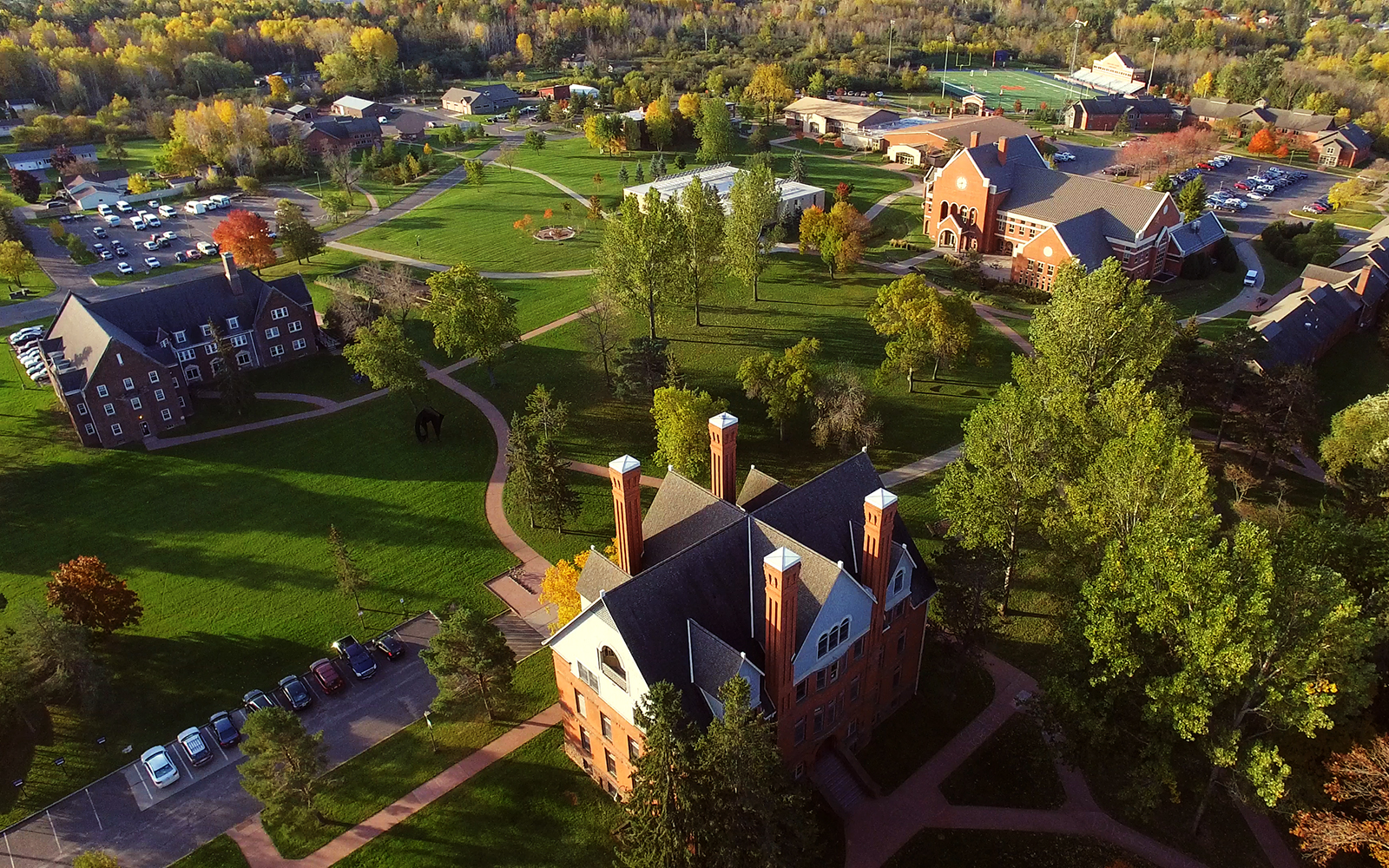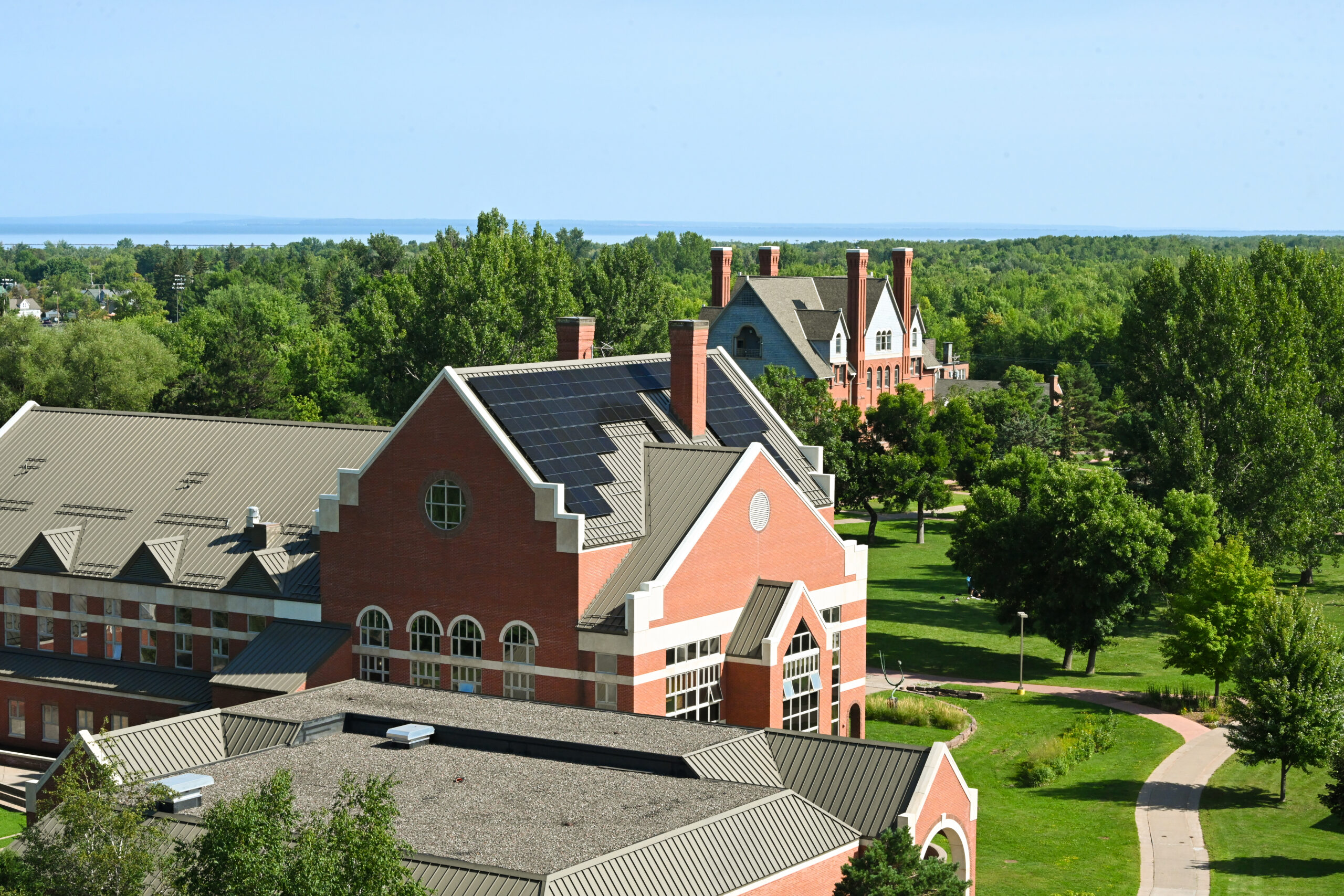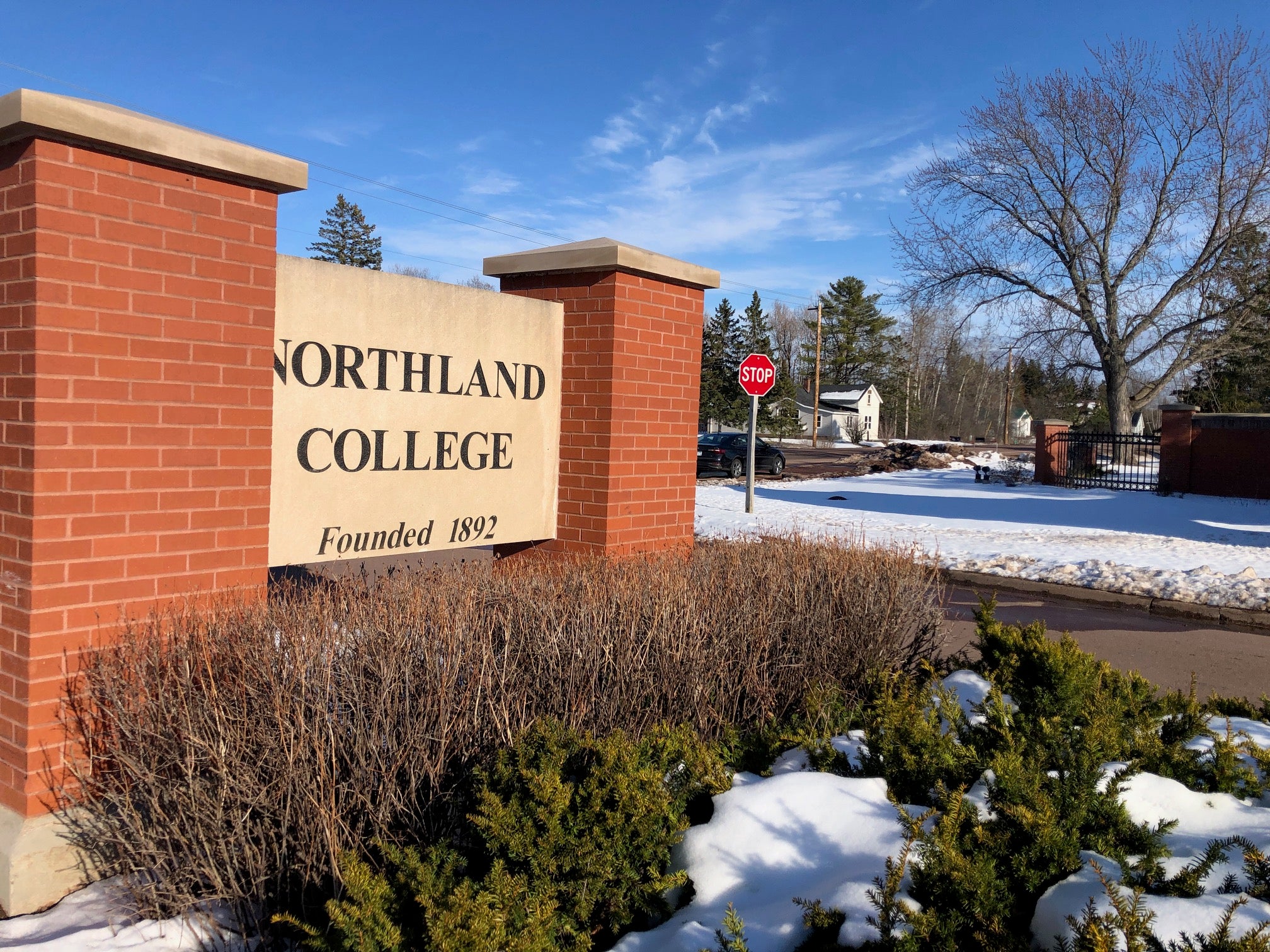Northland College in Ashland declared a financial emergency on Thursday, buying another two weeks to raise enough funds and make changes to avoid closure.
On March 12, college leaders announced the campus needed to raise $12 million by April 3 to avoid closing its doors, saying it had insufficient resources to continue operations. Since then, the college has raised around $1.5 million from more than 900 donations.
The Northland Board of Trustees voted to declare financial exigency, which means the financial crisis requires immediate steps to resolve. Now, they plan to make a final decision in two weeks. Ted Bristol, the board’s chair, told WPR the decision came in response to the extraordinary effort of the community, faculty, staff and others.
“We really wanted to take another look at our options, and we were also, frankly, deeply reluctant to make a decision to close,” Bristol said. “During the past three weeks, we recognize this widespread commitment to help, and we decided that we really wanted to explore this further to see if there still might be a path forward.”
In the next two weeks, Northland officials will explore changes to programs, staffing levels and its budget. Northland President Chad Dayton said a committee will examine the college’s operations budget, and a faculty ad hoc committee will assess faculty and curriculum as part of restructuring.

In recent weeks, staff and faculty have worked with community members to draft a plan to increase revenue, decrease expenses and expand the reach of the school. The initiative, dubbed True Northland, proposes cutting employees, reducing the number of students from roughly 500 to 350 on campus, and generating revenue by renting out residential halls and office space.
Dayton said True Northland is one of a number of interesting proposals, but he said it’s too early to tell what the restructure will entail. Angela Stroud, associate professor of sociology at Northland, said faculty have been asked to redo Northland’s curriculum.
“This is about reimagining our entire curriculum and cutting a significant number of faculty to fit a smaller student population,” Stroud said. “That process, as you can imagine, is extremely gut-wrenching, and doing it well in two weeks is an extremely tall order. We have been told this is our only option.”
Liberal arts colleges across the nation are struggling due to declining enrollment and rising costs. National education statistics show Northland has fluctuated between 600 and 500 students in the past decade. Like at other schools, Bristol said many Northland students aren’t paying the full amount of tuition as the cost of living has grown, saying the board’s ability to raise funds to close that gap has grown out of reach.
Tax filings show the school has been operating in the red since 2016, reporting a loss of nearly $3.2 million by mid-2022. Declining enrollment and increased costs forced the college to rely on its endowment to support operations, the endowment balance falling from a high of roughly $25 million in 2015 to $6.2 million in 2022.
“Northland is currently in a position where its endowment is reflective of its restricted dollar obligations, and so that instrument is no longer available for Northland to rely upon to fill budget deficits,” Dayton said.
News with a little more humanity
WPR’s “Wisconsin Today” newsletter keeps you connected to the state you love without feeling overwhelmed. No paywall. No agenda. No corporate filter.

Northland leaders and faculty said the college’s financial crisis has been “extraordinarily stressful” as they work to save the private environmental liberal arts school. Dayton said he and the board are committed to doing everything possible to ensure Northland’s survival. Meanwhile, Stroud said people are exhausted, afraid and feeling the weight of the college’s future.
For students, she said, it’s been challenging to learn or make decisions about their future, adding they’ve been put in a “horrible situation.”
Northland students have been posting videos on social media of the campus community as part of a project called Save Northland, including Kelby Youngberg and Fletcher Thomas. When leaders made the announcement on campus Thursday, Thomas said he cried as the two hugged each other.
“It’s like two more weeks of turmoil is what I heard of that,” Thomas, a Northland senior, said. “I think that really captures how a lot of people feel about this.”
Dayton said the school is offering mental health and other support services to the campus community. The college has approved two teach-out agreements with College of the Atlantic in Maine and Gustavus Adolphus College in Minnesota, and Dayton said six more are in the works. The agreements are contracts between schools that allow students to finish their studies. The college is also holding fairs for both students and employees next week to aid with any transition in their education or careers.
Current and former Northland students say they were caught off-guard by the college’s dire financial straits. They’ve formed their own appeals to help generate funds for the school’s plight.
Kaelin Hall, a former student with the group Northland Forever, said the college has generated support from New York Times bestselling author Robin Wall Kimmerer and author and activist Robin Greenfield. Kimmerer, author of “Braiding Sweetgrass,” wrote a letter of support for Northland. Greenfield drew attention to the school’s plight in a social media post.
Stroud said Northland isn’t like colleges struggling to survive elsewhere, highlighting its commitment to climate resilience and social justice.
“This is the kind of institution that doesn’t just deserve to survive, but that our society needs to survive,” Stroud said.
Wisconsin Public Radio, © Copyright 2025, Board of Regents of the University of Wisconsin System and Wisconsin Educational Communications Board.




